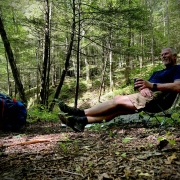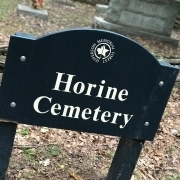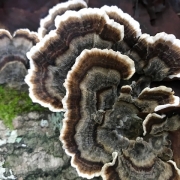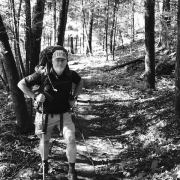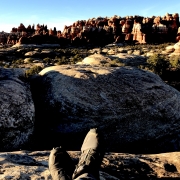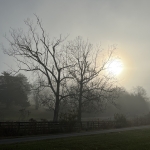Live Life While You’re Alive, No One Will Survive | Healthy Aging Series: S8, E9
This blog features “It’s All About Me,” by Mel Brooks
My father hated the fall. “Everything is dying,” he would tell me. He wasn’t a pessimistic person. He didn’t complain a lot about getting older, at least not to me. He was proud of his nine children. He loved his 25+ grandchildren. But fall, I’m guessing, reminded him that, as Mel Brooks wrote in his recent autobiography, “No one will survive.”
I’m reminded of this often. News headlines. Car crashes and shootings. Family members facing terminal illnesses. The loss of a close friend or loved pet. You look at the mirror and you see your father’s or your mother’s face. The trend lines on your blood work slowly point downward. And you realize that you’re slowly dying. Sorry for the negativity.
OK, what do you do with that epiphany? Mel Brooks‘ advice is live life while you’re alive! I heard him give this quote while being interviewed for his new book, “It’s all About Me!“ Which he wrote, when he was 95 years old. I decided to read the book. Here are my takeaways from his book:
1. Mel Brooks followed his bliss. I borrowed this phrase from Joseph Campbell when he was interviewed by Bill Moyers and was asked what advice he would give to young people today and his answer was: follow your bliss. Mel Brooks found his happiness and success by following his bliss. His bliss was making movies. “Movies,“ he writes, “rescued my soul.“ I think that some people misunderstand what it means to follow your bliss. It’s not like a stroll in the park. It’s not the 10% rule, which says that you only need to “show up.” Following your bliss means hard work, persistently paying the price, and never giving up. Look has something to do with it. Brooks writes that “you never know when and how a stroke of luck is going to come and cross your path.“ Following his bliss put Brooks into situations that made it seem like luck, but luck resulted from all the effort that it took to follow his bliss.
“I worked hard,“ he writes, “and I conquered my fear of the empty page.“ He never took no for an answer. He would never have found his bliss if he had never followed it.
I followed my bliss, my passion, and I started working, in the helping profession 40 years ago. That was my dream as a young man. At the time I completed several internships. After graduating, I worked as a therapist for almost nothing, barely making $10 an hour. But I did it because I loved what I was doing. Forty years later, I love what I do I have found my bliss because I followed my bliss. Live while you’re alive.
2. Brooks learned one of life‘s most important lessons: he learned to stand on his own two feet. Credit his time in the army during World War II for helping him grow up. The military can do that. He did it to me. I spent a year in Texas, a year in Ohio, and two years in Korea. A long way from home. No hovering parents. OK, maybe a hovering drill sergeant. I tell the parents that I’m working with that soon, very soon, the school of hard knocks is going to kick in with their teenager. And then, that’s when real growth happens. The “learning to stand on our own two feet,“ comes, not necessarily books, or from time in a classroom. Most of our learning experiences come from outside the classroom, in the trenches, and because of the challenges that life presents to us. Brooks learned from every experience and everybody! From Neal Simon, he learned “that every second counts in comedy.” Even at 95 he continued to learn!
3. There would be no Mel Brooks without his friends. Specifically, he writes at if there had never been a Sid Caesar, there would never have been a Mel brooks.
He describes Carl Reiner as the best friend anyone could ever have. Brooks recalls the long walks he took with Woody Allen and the refreshing chatter that they had on those walks after work. His 40-year marriage with Anne Bancroft was a constant source of creativity and support. If you’re going to live while you’re alive, friendships matter, and if you let them, your friends will help craft you into someone that otherwise would not have been. We live in a culture of rugged individualism, where we are taught to be self-sufficient and need no one. But we need to remember the somewhat corny song by Barbra Streisand that says, “People who need people are the luckiest people in the world,“ and the pronouncement that “No man is an island entirely of itself.”
I think living life while you’re alive, means seeking out new friendships and nurturing the friendships that you have.
I loved this book, and Mel Brooks has become my new hero. When asked “What is the secret to living a long life?” He responded, “Don’t die!”
I love it.
To read more entries in the Healthy Aging series, click here.

